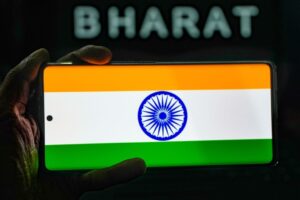What’s in a name? When it comes to those of countries, an awful lot, apparently. Rumors are swirling that India might soon formally become Bharat. One might consider the bureaucratic nightmare, the many tons of new stationery that needs to be ordered, the updates to maps and atlases, and the aspiring hippies and yoga instructors wondering what happened to India. There are good reasons why some countries change their names – and a few not-so-good.
Some countries alter their name for the sake of national pride. Their governments and/or people decide their homeland should be known by the name they use for it. A relatively recent example is Turkey, which became Türkiye. Others — mostly in Africa — do so because they, as countries, were products of European colonialism. At some point, they choose to throw off their colonial names in favor of something more native, so to speak. Rhodesia in southeast Africa became Zimbabwe; Bechuanaland – also in southern Africa – became Botswana; and Swaziland rechristened itself eSwatini. That last one might sound like a cellphone app, but it in fact means Land of the Swazi. So, Swaziland, then, but in the official language Siswati. There are others, too.
Some nominal alterations were the result of new countries being formed or nations that were once sovereign breaking away from artificial geographical coalitions. Bosnia and Herzegovina, Slovenia, Croatia, and Macedonia, for example, freed themselves from Yugoslavia. Then Macedonia became North Macedonia because its Greek neighbors, who already had a Macedonia, were not happy.
There are also those countries that name themselves out of political considerations. After the Korean War, the Chinese-sponsored communist north became the Democratic People’s Republic of Korea. It’s an interesting name, containing three words that mean nothing – in this case – and only one that accurately reflects its status.
The list goes on and on. There are too many to catalogue here, lest the reader not finish this article before another name change happens.
Czechoslovakia became Slovakia – not to be confused with Slovenia – and the Czech Republic. Then, the latter renamed itself Czechia. What’s a high school geography student to do? How does anyone over the age of, say, 40 ever catch the right flight? Does the United Nations keep up with this stuff? What do they do with all those little signs that go on the desks once they are obsolete – sell them on eBay?
India, Indians, and Bharat

(Photo by Thilina Kaluthotage/NurPhoto via Getty Images)
Back to Bharat. It is a name from the ancient Sanskrit language and already used by a lot of people who live in what is still, for the time being, India. At the recent G20 summit, Indian President Droupadi Murmu sent out some dinner invitations under the title of “President of Bharat,” which caused a lot of heads to be scratched and tongues to be wagged.
What will we call the people if the name changes? They will no longer be Indians, which means Americans – particularly American Indians – can breathe a sigh of relief. No more confusion about which Indians are being referenced.
Does any of this matter? In many cases, it does indeed matter to the citizens of the countries in question. Whether it concerns the rest of the world is of little consequence – though perhaps the globalists would prefer every country to have just a number. Still, if one is visiting India anytime in the foreseeable future, one shouldn’t fret. “India” was not a colonial name bestowed by the British Empire; the South Asian country through which the 2,000-mile-long Indus River flows was known to many as India for a very long time before the Brits got there.

